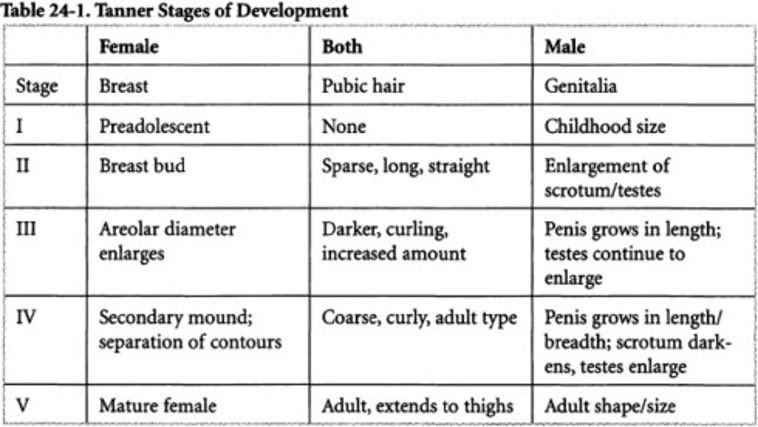A child is hospitalized after a serious motor vehicle crash and has developed increased urination. What action by the nurse takes priority?
Restrict dietary sodium intake.
Assess the daily serum sodium level.
Weigh the child daily.
Monitor the child's intake and output.
The Correct Answer is D
In this scenario, the child's increased urination after a serious motor vehicle crash may
indicate a potential issue with fluid balance. Monitoring the child's intake and output is the
priority action for the nurse. This involves accurately measuring and recording the fluids the
child consumes (intake) and the fluids the child eliminates through urine, sweat, and other
sources (output). By closely monitoring the child's intake and output, the nurse can assess the
child's fluid status and identify any abnormalities or imbalances that may require further
intervention.
Restrict dietary sodium intake in (option A) is incorrect because restricting dietary sodium
intake, may be necessary in certain situations, such as if the child has a known sodium
imbalance or hypertension. However, it is not the priority action in this scenario.
Assess the daily serum sodium level in (option B) is incorrect because assessing the daily
serum sodium level, is important to evaluate the child's electrolyte balance. However, it is not
the priority action compared to monitoring the child's intake and output.
Weigh the child daily in (option C) is incorrect because weighing the child daily, is a useful
measure to assess changes in fluid balance. However, it is not the priority action in this
scenario compared to monitoring the child's intake and output, which provides real-time
information on fluid balance.
Nursing Test Bank
Naxlex Comprehensive Predictor Exams
Related Questions
Correct Answer is B
Explanation
The statement that best describes Tanner staging is option B. Tanner staging is a system used
to classify and assess the progression of puberty based on the development of both primary
and secondary sexual characteristics. It provides a framework for evaluating the physical
changes that occur during puberty, such as breast development in females, testicular
enlargement in males, pubic hair growth, and other secondary sexual characteristics. The
Tanner staging system includes several stages that represent the sequential progression of
puberty in individuals.
staging of puberty based on the initiation of primary sexual characteristics in (option A) is not
correct because it, does not encompass the full scope of Tanner staging, as it does not
consider the progression of secondary sexual characteristics.
staging of puberty based on the initiation of menarche (the onset of menstruation) and
nocturnal emissions, in (option C) is not correct. While menarche and nocturnal emissions are
significant events that occur during puberty, they do not encompass the entire Tanner staging
system, which involves a broader range of physical changes.
predictable stages of puberty based on chronologic age, in (option D) is not correct. Tanner
staging is based on the progression of physical changes and sexual maturation, rather than
being solely determined by chronological age. Puberty can vary in onset and duration among
individuals, making chronological age an unreliable indicator of pubertal development.

Correct Answer is A
Explanation
The nurse's best response to the parents of a 10-year-old child newly diagnosed with type 1
diabetes mellitus, who are concerned about the child's continued participation in soccer, is to
reassure them that it is generally safe for the child to play sports such as soccer unless the
weather is too hot.
Regular physical activity, including participation in sports, is generally encouraged for
children with type 1 diabetes as long as certain precautions are taken. It is important for the
child to have a well-managed diabetes management plan in place, which may include
monitoring blood sugar levels before, during, and after physical activity, adjusting insulin
doses as necessary, and having appropriate snacks available to maintain blood sugar levels.
Option B, suggesting the swim team as an alternative to soccer, may be a viable option if the
child or parents prefer swimming or if the child has specific concerns related to soccer.
However, it is not the best response to the parents' concern about the child's continued
participation in soccer.
Option C, recommending an extra carbohydrate snack before soccer practice, is a valid
suggestion to help maintain the child's blood sugar levels during physical activity. However,
it should be part of a comprehensive diabetes management plan and not the sole response to
the parents' concern.
Option D, encouraging intellectual activity rather than participation in sports, is not
appropriate as physical activity is generally beneficial for children with type 1 diabetes, as
long as appropriate precautions are taken.
Whether you are a student looking to ace your exams or a practicing nurse seeking to enhance your expertise , our nursing education contents will empower you with the confidence and competence to make a difference in the lives of patients and become a respected leader in the healthcare field.
Visit Naxlex, invest in your future and unlock endless possibilities with our unparalleled nursing education contents today
Report Wrong Answer on the Current Question
Do you disagree with the answer? If yes, what is your expected answer? Explain.
Kindly be descriptive with the issue you are facing.
